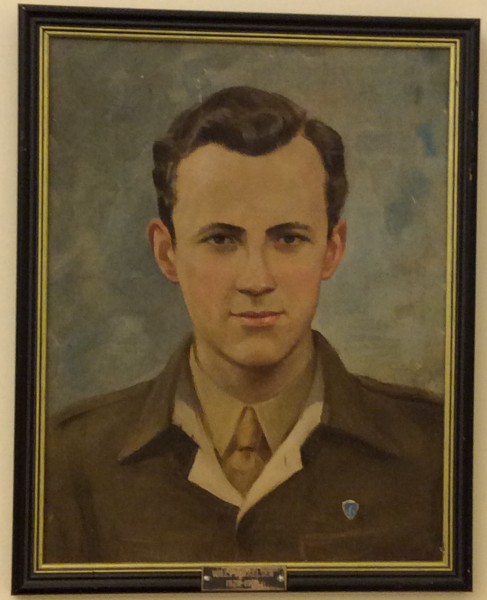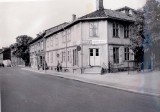Willy Mikkelsen
Willy Mikkelsen (b.1928 in Kongsberg) moved to Oslo as a young man in 1949. About ten years later he established his tailor business, Willy Skredderservice in Hagegata 32.
It was an important turning point for Willy Mikkelsen to become member of the de gay organization DNF-48 (The Norwegian Association of 1948). A new world opened up - he was no longer alone! Soon he was an important social center in the organization. From the mid-1960s he held key positions as secretary, and for a shorter period around 1970, as chairman.
When Karen-Christine (Kim) Friele (later an important activist) for the very first time entered a secret party arranged by DNF-48 in 1963, she was greeted by a smiling man with "two quick brown eyes" working in the bar: "Hello, and welcome to us. My name is Willy Mikkelsen. During the day I am a tailor, and the rest of the day I work for the DNF-48. I can be used for anything, just like the potato." (Norwegian expression.)
Kim and Willy found each other both on a personal and political level - they both wanted a break with DNF-48's extremely discreet and anonymous existence. And when Friele was elected chairman in 1966, his tailoring workshop in Hagegata became her office. She describes the room as cozy and mildly chaotic, full of a mix of sewing and personal items. The association's money was hidden under four dresses and a tuxedo.
Hear Kim Friele talk about Willy Mikkelsen in one of our podcast episodes. (In Norwegian)
Here the foundation was laid for the first major victory in the gay struggle: the lifting of the ban on sex between men. Kim fronted the case, but Willy and his partner Jan H. Nordbø (1944–1988) took an active part in the work and the strategic discussions.
Small victories were celebrated with champagne in Hagegata. And when the Storting (parliament) finally lifted the ban in June 1972, Kim, Willy and Jan were cheering from the Storting's gallery.
Many people still remember Willy Mikkelsen as a social, outgoing and caring man. Many were introduced to the gay community in the tailorshop. On the second floor of the workshop, meetings were arranged for members from all over the country for several years. For many, the memory of Willy is inextricably linked to his alter ego Zarah Leander, who with great elegance and empathy performed the brilliant number "Vill ni se en stjärna" at the parties in Hagegata and at Snarøya.
Willy Mikkelsen deserves to be remembered as an important pioneer in the struggle to create a more open and inclusive society.
Willy Mikkelsen died in 1984, his partner Jan, four years later.
The quotes are taken from Karen-Christine Friele biography: «Troll skal temmes». Oslo: Scanbok 1990.


